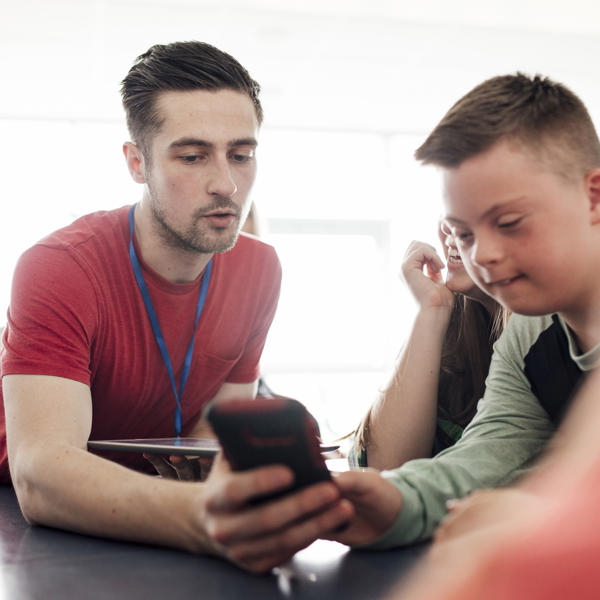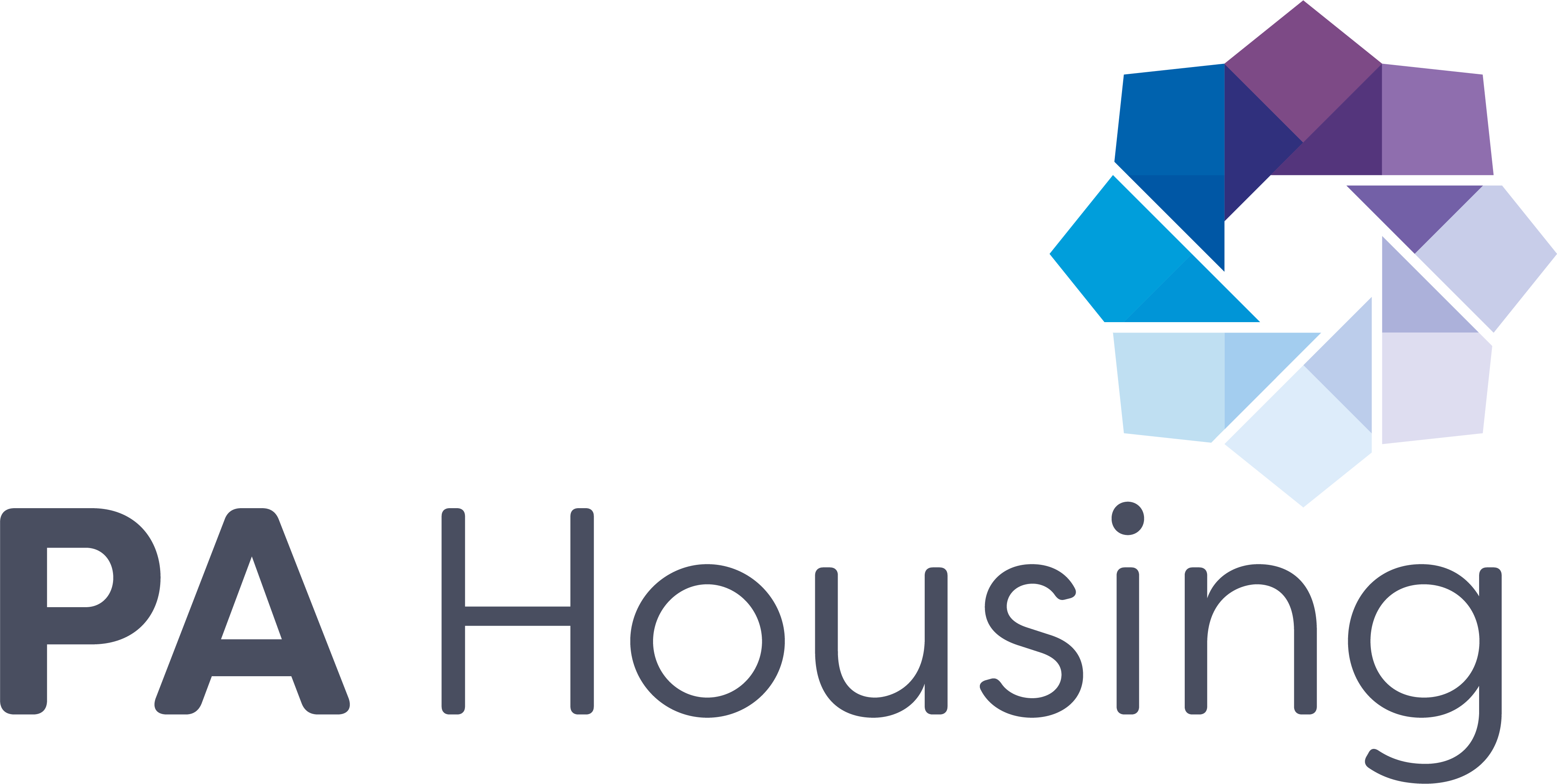Hi, I’m Leah and I’m kind of the instigator behind the Hidden Disabilities Sunflower partnership that PA has now.
My goal has been to create a space where colleagues with neurodivergent conditions or other hidden disabilities can feel understood, seen, and comfortable being themselves.

I put a proposal together about HDS and our Senior Management Team loved it!
They were receptive to the idea, so we launched in June and now PA colleagues can request green sunflower lanyards and badges to make hidden disabilities visible and white ‘I support the sunflower’ lanyards to show solidarity.
I was aware of HDS because I have ADHD (or attention deficit hyperactivity disorder), which is a lifelong condition, but I got my diagnosis in 2023. It made my life up to that point make so much more sense to me. Also, I have diabetes, which is another condition that people can’t see, so I want to promote this network because the sunflower is a way of raising awareness and promoting understanding of these hidden disabilities. I wear my green lanyard and include it in my email signature to make my hidden disabilities visible and to ask for a bit of extra patience where needed.
It’s hard to say how ADHD affects me every day as it’s part of who I am – loud, disorganised, distractable, very impulsive. There are three types of ADHD: Inattentive, Hyperactive-impulsive, and Combined (which is what I am). My ADHD traits can sometimes feel at odds with my responsibilities in HR, which require a lot of attention to detail because of all the factors I need to consider. But, of course, since I’ve dealt with these things my whole life, I have my own coping mechanisms and ways of working.
Part of my ADHD is rejection sensitive dysphoria which means that even when I receive fair criticism, my brain can interpret it negatively, my self-esteem can plummet, and my productivity can go down. That’s why I need a boost in confidence and support, and the HR Team I work with has been amazing and so accommodating of that. Another thing is my distractibility, like how Microsoft Teams gives you 15-minute reminders before meetings. A lot can happen in 15 minutes! I can very easily be distracted in that time and still miss things. So, I have to be wary of that too.
My ADHD has also had an adverse effect on my diabetes because that’s all about managing your body. Back in the late 90s and early 2000s, that meant injecting insulin with a syringe in the morning, night, and whenever I wanted eat food with carbs. However, my ADHD meant that I’d get distracted and forget to do this, which led to it negatively affecting my health. My conditions worked against each other, and I couldn’t understand why I wasn’t able to keep track of it at the time when my doctors would ask me. Now, I have an app that tells me when I need to take my medication, but I still need to be careful not to check my latest WhatsApp message instead when I look at my phone.

There are lots of behaviours that I still need to challenge myself on and continue to work on.
For my diabetes, I found out I had it in November 1998 when I was a kid, which I’ll always remember because it meant that all the chocolate biscuits were taken out of the cupboards. My brothers were very upset about this!
With my ADHD, I didn’t exactly know until I was diagnosed, but it affected me before then, like throughout school. For example, I could never do my homework until the night before it was due because I’d procrastinate. But then, I’d be really productive and effective when it came close to the deadline. This is something I’ve learned to use to my advantage in my working life.
When you’re in conversations and you have ADHD, your thoughts can move faster than the person speaking, so you can get impatient, want to jump in, or finish their sentences. Like… get to the point! I did this a lot growing up and so my teachers and parents would consider it rude. Now, I can control that a bit more – or at least pretend to, which is called ‘masking’.
It wasn’t until I saw a lot of content discussing ADHD on TikTok a few years ago that I started to see the similarities in my own traits and behaviours. That’s when I spoke to my doctor and went to get my diagnosis through a shared care agreement where I was referred to Psychiatry UK. This took quite a while; I had to wait for around 11 months to find out because the waiting list is very long now that more people are discovering that they have it – especially since lockdown. Like many things, it's also very underfunded.

If a PA colleague were to suspect they had a neurodivergent or other hidden condition, there are a few options.
They could talk their GP to discuss it like I did, or – as a PA employee – they could go for a private assessment through SimplyHealth and get most of the cost refunded. I’ve heard from other PA colleagues that they’ve been able to get a diagnosis within 5 days by using this method.
Now that I’ve been diagnosed, I’m lucky to be on medication which I was able to get through Psychiatry UK. This took around 9 months after I was diagnosed. It helps me to focus and manage my ADHD. It’s actually a kind of amphetamine (to the amusement of my husband).
One of the main pieces of advice I can give though is to not be afraid to ask for help or to say, ‘I don’t know’. It’s not a weakness, it’s a strength and shows a willingness to learn. I’m glad that I’m now confident enough to do that.
There was a very damaging episode of BBC Panorama on last year where a journalist went to a private clinic describing ADHD symptoms and got a diagnosis. Then, the same journalist went to an NHS doctor and described himself without those symptoms and didn’t get one. It created this perception that many people are ‘just pretending to have it.’ This investigation meant that many diagnoses were rescinded, and thousands lost access to medication. But who would make it up when it can be such a struggle?

Neurodivergent people’s brains are chemically different and often the world of work isn’t set up in a way that suits them.
A diagnosis makes you realise ‘I’m not broken, I’ve just been trying to work in a way that doesn’t work for me’. While this isn’t a rule for everyone, people with ADHD tend to struggle in more corporate environments. That’s why we often favour industries where we can be ourselves.
PA has been one of the best places I’ve worked because I haven’t had this level of acceptance anywhere else.
I hope that the sunflowers can take this even further and allow more people to be themselves and feel confident expressing their need for support.
Would you like to know more?
For anyone reading this, I hope you’ve found it helpful and insightful. For more information about Hidden Disabilities Sunflower, check out their website.





